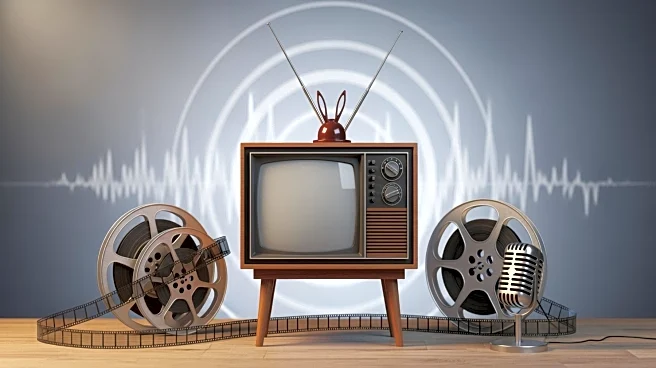What's Happening?
South Carolina Public Radio's program 'Who What When' is focusing on the history of television this week. The show aims to engage listeners with TV trivia, examining famous presidential TV gaffes, and
distinguishing real TV shows from fictional ones. Dr. Deanna Sellnow, professor and chair of the Department of Communications at Clemson University, will discuss the cultural impact of television. The program invites audience participation through calls, texts, and emails, encouraging listeners to become contestants and join the conversation.
Why It's Important?
Television has played a significant role in shaping cultural norms and public opinion in the United States. By exploring its history, 'Who What When' provides insights into how TV has influenced political discourse, entertainment, and societal values. Understanding these impacts is crucial for media literacy, helping audiences critically assess the content they consume. The involvement of Dr. Deanna Sellnow adds academic depth to the discussion, highlighting the importance of television as a cultural artifact and its ongoing relevance in communication studies.
What's Next?
Listeners can expect continued engagement with the program as it delves into various aspects of television history. The interactive format allows for real-time participation, fostering a community of informed viewers who can contribute their perspectives. Future episodes may explore other media forms or historical events, expanding the scope of cultural analysis. The program's approach may inspire similar initiatives in other regions, promoting media literacy and historical awareness across broader audiences.
Beyond the Headlines
The exploration of television history by South Carolina Public Radio may prompt discussions on the ethical responsibilities of media producers and consumers. As television continues to evolve with digital platforms, understanding its past can inform future media practices. The program's focus on presidential TV gaffes also underscores the intersection of media and politics, highlighting the power of television in shaping political narratives and public perception.









